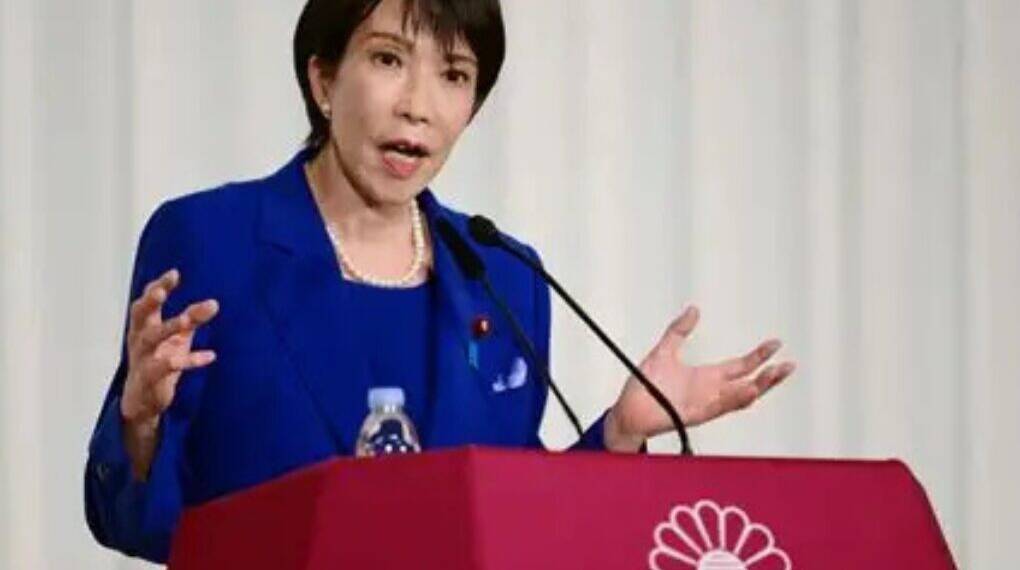Japan has elected Sanae Takaichi as its first female prime minister, marking a historic moment in the country’s post-war political history. The 64-year-old Liberal Democratic Party (LDP) veteran secured majority backing in a parliamentary vote on Tuesday, succeeding outgoing Prime Minister Fumio Kishida.
Takaichi, long known for her conservative and nationalist positions, has built her career on advocating stronger defense policies, traditional social values, and closer alignment with the United States. Her ascent to the nation’s highest office comes at a time when Japan faces both regional security challenges and deepening demographic and economic concerns.
A Historic Yet Conservative Choice
Takaichi’s election is a landmark for Japan, where women remain significantly underrepresented in politics and business. Despite the historic nature of her appointment, her political stance is firmly rooted in Japan’s conservative mainstream.
Often described as Japan’s “Iron Lady,” a nod to her admiration for former British Prime Minister Margaret Thatcher, Takaichi has pledged to strengthen Japan’s defense posture and maintain stability in a volatile international environment.
“She represents continuity in Japan’s defense and foreign policy,” said Professor Hiroshi Shimizu, a political analyst at Keio University. “While her leadership is groundbreaking from a gender perspective, her policy direction reflects the traditional priorities of the ruling LDP.”
Security and Foreign Policy Priorities
Takaichi has been a strong advocate of revising Japan’s pacifist constitution, particularly Article 9, which renounces war as a means of settling international disputes. She supports formally recognizing Japan’s Self-Defense Forces (SDF) as a national military and increasing defense spending to counter emerging threats.
In recent years, Japan has faced mounting tensions with China over territorial disputes in the East China Sea and concerns about North Korea’s missile program. Takaichi has emphasized deterrence and has proposed deeper defense coordination with the United States and like-minded partners.
She has also expressed support for closer security ties with Taiwan — a position likely to draw criticism from Beijing. On Russia, Takaichi has maintained a firm stance over Japan’s claim to the southern Kuril Islands, making a diplomatic breakthrough with Moscow unlikely.
Historical and Regional Sensitivities
Takaichi’s record on historical issues has been a source of contention. Her regular visits to Tokyo’s Yasukuni Shrine — which honors Japan’s war dead, including several convicted of war crimes — have drawn protests from neighboring countries such as China and South Korea.
Critics accuse her of historical revisionism, but Takaichi has described the visits as personal acts of remembrance, denying any political intent. “It is a matter of honoring those who sacrificed their lives for the country,” she said in a previous interview.
Domestic Policy and Social Conservatism
Domestically, Takaichi’s policies reflect traditional social values. She has opposed legalizing same-sex marriage, supports maintaining the male-only imperial succession, and has rejected proposals allowing married couples to use separate surnames.
On immigration, she has argued for stricter regulations and greater scrutiny of foreign land ownership near military bases and other strategic assets. She has also called for measures to address visa overstays and the impact of mass tourism.
Takaichi is expected to focus on stabilizing Japan’s economy, which continues to face persistent inflation, sluggish wage growth, and the pressures of a shrinking and ageing population. Economists say her administration will need to balance fiscal discipline with efforts to stimulate domestic demand and support working families.
Public Reaction and Challenges Ahead
Public reaction to Takaichi’s election has been mixed. While many have welcomed the historic breakthrough of Japan’s first female prime minister, others have expressed concern about her conservative views and potential strain on regional relations.
“She faces the difficult task of maintaining Japan’s strategic balance — strengthening defense while managing relations with China and addressing domestic issues,” said analyst Naomi Kondo of the Japan Policy Forum.
Takaichi takes office amid low public trust in the ruling LDP, which has faced a series of corruption and fundraising scandals in recent years. Restoring public confidence, analysts say, will be one of her toughest challenges.
What next?
Sanae Takaichi’s premiership marks a new chapter for Japan — one combining a symbolic breakthrough with a continuation of conservative governance. Her policies are expected to reinforce Japan’s defense alliance with the United States, uphold traditional social norms, and pursue economic stability in uncertain times.
Whether she can balance these priorities while addressing Japan’s demographic and economic headwinds will define her leadership in the years ahead.








